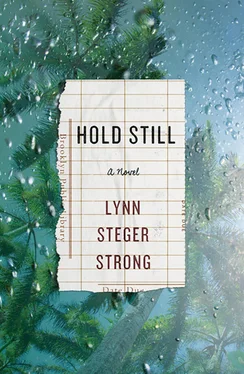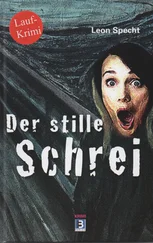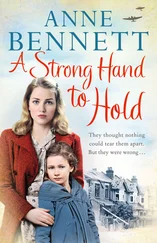“How do you even know this?” Maya asks him. She’s caught him a few times, trolling the Internet for scores and statistics, obsessive for the sake of it. Ben’s quiet. He lines his water glass with the index finger of his free hand.
The waiter comes and clears Stephen and Ben’s empty plates and they stay silent. It’s almost closing time and he’s removed his apron. Stephen sips his beer. “I’m interested in what our son is interested in.”
“Kenny’s not my friend, Dad,” Ben says. “He’s kind of a douche.”
Maya’s lips purse toward Ben and he smiles at her. She passes her plate to him and he consumes quickly all she’s not been able to.
At three a.m. Maya sits in the nook in the kitchen, her arms wrapped around her shins, in running tights, a sports bra, and a jacket, waiting for morning to get close enough that she can leave. If she can wait till five she’ll look less crazy. She’s decided it’s sufficient to hold out till four. She’s dressed quietly in clothes she keeps in Ellie’s room. She’s always kept socks and shoes close to the door.
Pans hang over the island on which there are six stovetops and lines of spices. Instead of cabinets, they have large oak shelves along the walls, the dishes, pans, and cookware on display. They’re embarrassingly wealthy — Stephen’s parents. He’s the only child and they’ve inherited everything. They have the brownstone in Park Slope, a block from the park, on Garfield, instead of Manhattan because it was what Maya wanted. Because there was a time in their lives when he made gestures as grand as moving to a side of the East River on which he had never previously set foot because Maya liked the trees.
She pulls on socks and shoes and ties them slowly, bends her left knee, and pulls her shin up against her face, then switches to the right. She laces her fingers and stretches her arms, one and then the other, pulling on her forearms. The lock clicks and the door creaks as she leaves.
Their block is shady, two- and three-family brownstones. They were some of the first gentrifiers, when Ellie was a toddler, Maya full-bellied with Ben. They’d felt a little pioneering, with the squatters and the lesbians still peopling Fourth Avenue, the less-than-stellar public schools they let their children attend the first few years. Maya brought up Sophie and Otto Bentwood at least once a week. (She’d even wanted to take in a stray cat that had loitered in their garden a few winter months the year they moved in. But Stephen was allergic; she’d had to bring her to the shelter instead, knowing full well what would probably happen. She was most shocked by how quickly she’d forgotten about it.)
Now Park Slope is more sought-after than parts of Manhattan. Their street is lined with Subarus and SUVs. Maya’s always been a little bit embarrassed by just how much she loves this. Academics are supposed to laugh in the face of creature comforts, but she’s grateful to Stephen for this: their lovely tree-lined lives, the ability to keep the house in Florida, vacations she would never have dreamed of till meeting him. Now the nicer, more progressive rehab in which they’ve locked their daughter this past year.
They have the garden in the back that Stephen maintains and Maya’s office window overlooks. When the kids were little they would sit out in the dirt as Stephen weeded or trimmed the bushes. Sometimes they’d use the smaller shovels he bought them and help him put in a new tree or plant. He wore khaki pants that were frayed at the bottoms and old boat shoes — he would never not be Upper West Side, Collegiate prep, Princeton, and Oxford — but he’s always been more interesting than that. And Maya would sit in her office, surrounded by the walls of bookshelves, all her work laid before her, and think this must be what people meant when they said joy .
She’s only a block from their house when she sees him. She’s headed toward the bridge instead of the park. The park’s only three and a half miles around and that seldom feels long enough for Maya now. He sits on a stoop, elbows resting on his knees, head lolling forward. She feels her breath catch in her throat; the stretch of muscle from her shoulders to her neck begins to tense.
She says her son’s name.
He pauses too long before he looks at her.
His eyes are glazed and his clothes the same that he was wearing at dinner. She sits on the step below him and looks into his face.
She thinks maybe he’s not sure it’s her, can’t figure how or why he’s out here. She wonders where he could have been. She rests her hand on his calf. There’s something sweet coming off him; weed, she thinks. She wishes he were small enough that she could pick him up and bring him to his bed.
“Benny, what are you doing out here?” she says.
“I went out,” he says.
“Out.” Her cheek is even with his knee and she rests it briefly on the denim of his pants. “With whom?”
“Friends,” he says. Like she doesn’t know the boys he’s been friends with since he was barely walking, kicking a ball in Prospect Park. Even this way, he has always been more predictable than El.
“I was in the city,” he says. He keeps his head down as he talks to her. “What does it fucking matter anyway?”
In the past year, she has spoken to him mostly once a week. She calls on Sunday afternoons when she knows he’s expecting her and they talk anywhere from ten minutes to an hour. Their conversation is hardly ever of much consequence. She knows he writes to Ellie too, but he never brings her up with Maya. Maya never asks. He tells her about class or friends or soccer. Sometimes they catch on something sure — something that he read that caught his interest, a movie they both saw, a moment in the news that feels both ripe for conversation and neutral enough to level back and forth.
“I went out drinking with some kids from high school and then smoked their awful weed.”
Maya holds tight to her knees and doesn’t answer. He’s nineteen years old. She hasn’t felt she had any right to scold her son since he was twelve.
“I’m fine, Ma,” he says. “Don’t worry.”
A few times, waiting up for Ellie when Ben was still in high school, Maya caught him stumbling in just before curfew, cursing as he pulled off his shoes or let his coat drop to the floor. She considered confronting him then, making him stand very close to her so she could smell his breath. She considered enforcing some system of punishment that she and Stephen could hold fast to. But it always seemed to her even his attempts at rebellion were laced somehow with good.
“I know,” she says. She looks up at him. His head lolls back and his eyes are closed, his mouth half open. He has a little Ellie in the fullness of his lips. “Benny. .” She wants to give him something solid, something that will keep him safe.
She turns toward him. “I’m sorry, Benny,” she says.
“Don’t say you’re sorry.” His words fall into one another. He’s so large from far away, but up close he might as well be ten years old.
“Well, what do you want me to say, then?”
“I don’t know, Mom. Something angry. Something that shows me I’m not the only one who’s noticed that we’ve basically all turned to shit.”
“That’s not true, Benny.”
“Well, what’s left, then?”
“Us,” she says. “All of us are here.” She stops, folds her hands into her lap to keep them from reaching for him. “The rest we’ll figure out. We’re still luckier than most.”
“Than Annie?” he says. “Jack?”
“Yeah, Benny. We’re luckier than both of them.”
“But are we? If it’s our fault? How could we be better off?”
“It’s not your fault.”
“It’s all our faults.”
Читать дальше












